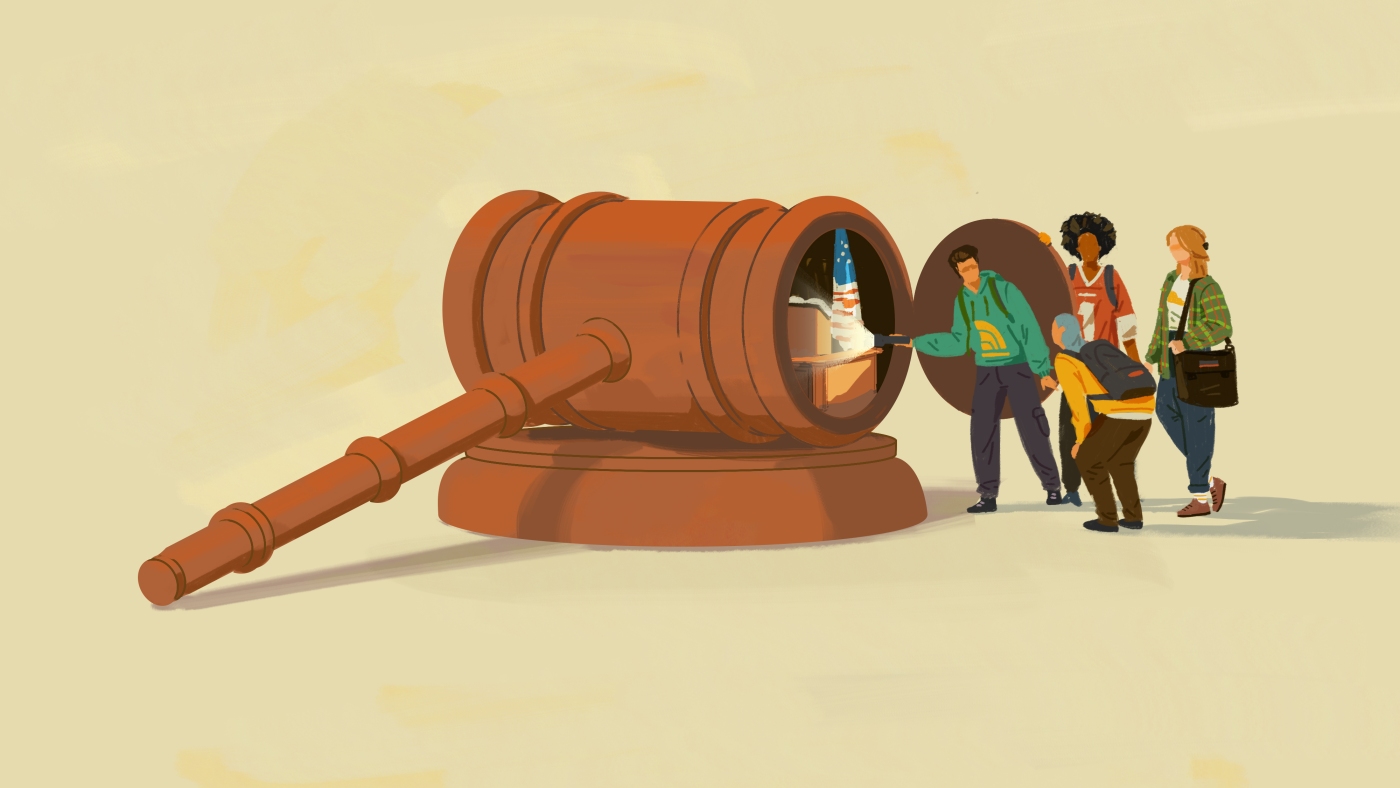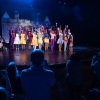– Your Honor, may I begin? Magda Khedr clears her throat and addresses the court.
After a quick nod from one of the three judges, the prosecutor begins his opening statement. “We contend that the search of Carmen Bundy’s phone,” Khedr says, “was a clear violation of her Fourth Amendment right to be free from unreasonable searches and seizures.”
Thus begins a one-day trial in New York. Although in this case the prosecutor is a high school student from Staten Island. It's all part of the annual trial competition, and students from more than 30 high schools in the city spend weeks studying and preparing their cases.
The judges are Fordham University Law students, and their decision will carry the weight of the law and provide important lessons about how government works.
For many young people, the legal system is a black box: they know what's going on and what's coming out, but few have any idea what's going on in the room where it's happening. This program, now in its 41st year, seeks to make a difference in citywide civil law program.
The case being investigated by Khedr, who attends Susan E. Wagner High School, is a fictional incident involving a high school student involved in a prank. As a result, the student is summoned for questioning to the deputy director. While in the room, the school resource person searches for her phone but does not read her Miranda rights.
Khedr argues that the search was illegal, and Brianna Mojica, a graduate of the New York City School of Law, Advocacy and Public Justice, argues that the meeting was not actually an interrogation.
“The fact that an interrogation involves a school resource officer who is a certified law enforcement officer does not mean that the interrogation constitutes custodial custody,” Mojica says in his opening statement. “Just as the presence of a priest does not turn a meeting into a church service.”
National Focus on Civics Education
Civil law is a subject that has long been the subject of bipartisan debate. However, President Trump recently made waves by criticizing current teaching methods and promising to change the system. In September the administration announced new coalition of conservative groups oversee the modernization of civic education on the eve of the country's 250th anniversary.
The department said in a statement that the initiative “aims to renew patriotism, strengthen civic learning and promote a shared understanding of America's founding principles in schools across the country.”
The administration's focus is on national test scores from an assessment known as report card of the nationshow that citizenship scores among eighth-graders in the United States have been declining since 2014. The polarization of society and the erosion of democratic principles have intensified.
Louise Dubé, CEO of iCivics, a nonpartisan nonprofit dedicated to civic education, says civics is not just government, history or social studies, but all three. First and foremost, she argues, is the skill set.
“In a democracy, divisions are ingrained,” she says. “So we look for the skills to talk politely to people you disagree with and try to solve problems.”
This begins with understanding concepts including the three branches of government, checks and balances of power, and the philosophy behind the nation's founding. iCivics, founded by Justice Sandra Day O'Connor after her retirement from the Supreme Court, provides free educational materials to help students understand democracy and develop skills to participate in it.
The idea is to help students “feel like part of a community,” Dubé says. “Understanding service to your neighbor, your community, your country, and valuing that as part of who you are.”
“We want all of our students to have a basic understanding of government, right?” says Michael Safe, senior program manager for the Justice Resource Center, a nonprofit that oversees court competitions in Fordham and other civic programs throughout the city.
“We want students to understand the importance of oral advocacy and be able to look analytically and critically at legal and civil issues and apply them to their lives.”
Confident, informed citizens
For students who participated in the month-long competition, the real-life experience was much more interesting than the lecture. Law student judges do not make any decisions on cases, but they do give students feedback and grade them to see if they have progressed in the competition.
All judges noted the confidence and preparedness of both students, but Mojica received one special commendation. “We all mentioned it during the meeting,” said Emily Knight, one of the judges and a third-year Fordham Law student. “The analogy you made with the priest was great.”
Knight says all students should be proud of themselves: “This is so impressive. I definitely wasn't able to do something like that in high school.”
Marla Kleinman, a social studies teacher at Wagner High School, helped Magda Khedr and the prosecution team prepare for the morning's argument. She says giving students a sense of their own voice is an important part of a civics-rich curriculum.
No matter the subject, she reminds her students, “It's ideas, not people, that challenge.”









